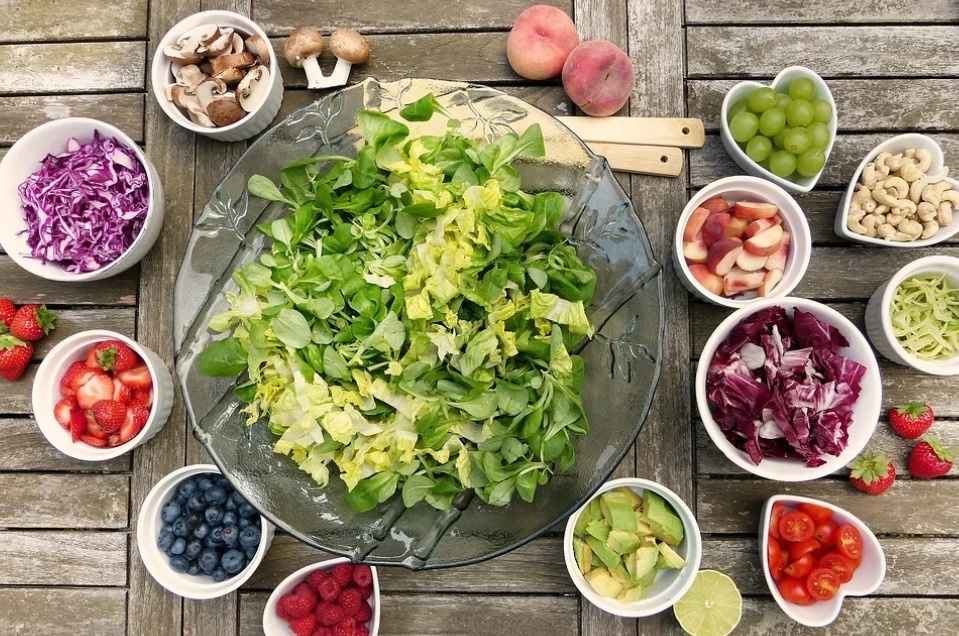Winter is typically associated with staying inside. It’s the perfect time of year to indulge in sweets and hearty spicy foods but also the time of the year when our digestive system slows down. Your body interprets prolonged exposure to cold temperatures as a warning to save energy and heat, which slows down metabolism. Your digestion suffers due to this slowed metabolism. It’s crucial to eat the correct meals to maintain healthy digestion and stay healthy during the cold months.
Eat seasonal fruits and vegetables
Winter veggies are excellent for your digestive tract and should always be consumed in season. Winter greens (kale, leeks, mustard greens, chard) and root vegetables (beets, carrots, parsnips, potatoes/sweet potatoes, turnips) also ripen throughout the cooler months. Winter veggies’ high fiber content is also a wonderful way to speed up a slow digestive system and manage blood sugar levels. Additionally, these will keep you full for a long time, which reduces your desire to overindulge in other fattening meals and keeps stomach-related problems at bay.
Avoid processed food and alcoholic beverages
You should limit your sugar intake, processed foods, and alcohol if you want to maintain good digestive health. Junk food slows down metabolism and creates bloating, which is harmful to the digestive system. Fast food does not provide the enzymes that the stomach needs to break down food. Fiber and water are needed for excretion when food is absorbed by the colon, but they are deficient in these nutrients, leading to poor digestive and gastrointestinal problems.
Foods high in fiber
Although fiber-rich foods are great all year round, in winter they are essential. High-fiber foods assist in regulating the digestive process. You can find fiber in all winter green leafy vegetables in addition to carrots, guava, radishes, apples, etc. Along with that, you can increase your intake of probiotics or add some food supplements to help your digestive system work even better. Broad-spectrum gut health supplements will stop bad bacteria that may have entered your body through food or drinks from going into your blood. Doing so can help maintain a healthy mix of good gut bacteria. Even fermented foods can help.

Add aromatic herbs and spices to your meals
Add some spices to your food to give them a fall flavor and to aid with digestion. This is a fantastic technique to reduce your intake of salt as well. Winter dishes require a range of spices and herbs to bring in the full benefits for the digestive system. Herbs that improve the body’s capacity to effectively digest meals and break down fat include turmeric, cayenne, cloves, cinnamon, ginger, cardamom, and nutmeg. They can strengthen both the immune system and digestive system. Try to include these ingredients in your tea and warm dishes like soups, drinks, and veggies.
Relax and exercise
The digestive system is negatively impacted by stress. Try to relax by engaging in yoga, meditation, or other activities like walking or something else you like. Try things like cooking, taking pictures, dancing, or listening to music.
Regular exercise aids in losing weight as well as maintaining heart health. Additionally, it enhances the health of our gut, which helps prevent obesity. When the temperature outdoors drops, it might be challenging to keep up an exercise routine. Keeping to your regular schedule as much as you can throughout the holidays decreases the risk of digestive distress.
Stay hydrated
Our fluid intake suddenly decreases in colder weather. Insufficient water causes the intestines to become rigid, which makes it harder to pass food. It is crucial to stay hydrated at all times for easier removal and movement through the intestines. Therefore, drink a lot of water each day.
Sure, we tend to choose warm beverages when the weather is chilly but avoid hot cocoa and other sweet specialty drinks and choose tea instead to keep your digestive system healthy. Hot tea is just as comforting, and there’s no milk and sugar damaging your digestive system. When it’s cold outside and we tend to drink less water, hot tea is a great way to increase your water intake.
Keep to your sleep schedule
Winter’s shorter days might make it simpler to sleep more. Children who are not in school may decide to stay up later in the evening. The ability of sleep helps the body “heal” itself. The body heals when in a deep sleep cycle, including the gut. Regular sleep patterns enhance mood, memory, and intestinal health. On the other hand, an unpredictable schedule can raise the risk of intestinal irritation.
In conclusion
Digestive issues are fairly prevalent in the winter, and everyone has experienced some discomfort. Thus, it is crucial to improve digestion and take additional precautions.
